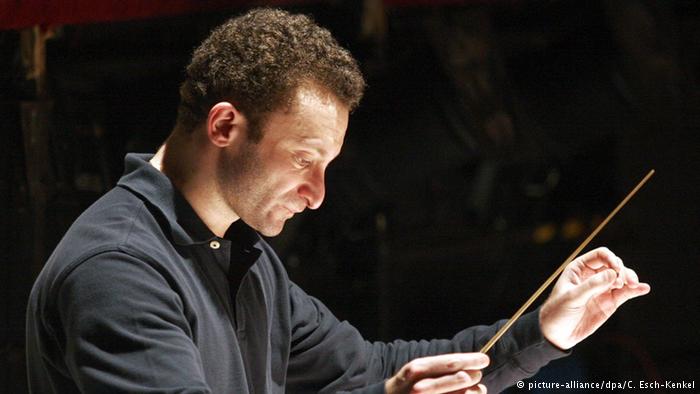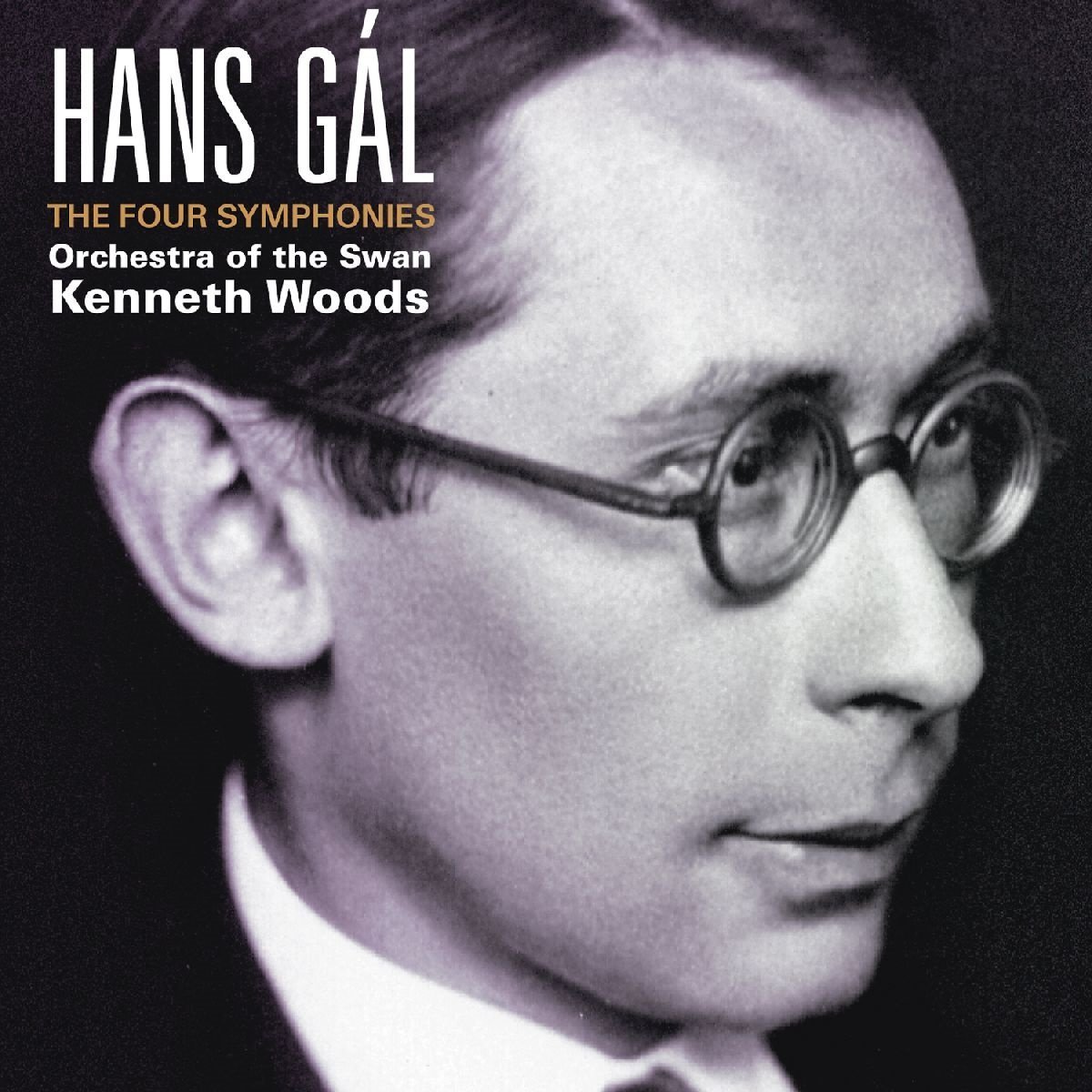The music industry reacted with wide-eyed amazement this month as the world’s leading orchestra announced they were appointing someone to the prestigious position of Principal Conductor based on his ability to conduct. Across Europe, North America and the Far East, orchestral managers, agents, musicians and music lovers expressed genuine shock at the news that a conductor, Kirill Petrenko, had been hired solely on merit, for possibly the first time in recent memory, to conduct the Berlin Philharmonic, considered by many to be the world’s greatest orchestra.
News of Petrenko’s appointment sent journalists scrambling to uncover suspected affiliations with the Illuminati, the Masons or Goldman Sachs, but initial inquries left journalists baffled. “I don’t get it,” said New York Herald senior critic Havergal Thomson. “All anyone seems to know about this guy is that he’s really good at conducting.”
“It’s not that good conductors never get jobs” said New York-based mega agent Donald Wontford. “It’s just that I can’t think of another instance of a conductor getting a really important job because they were good. Being good has historically been further down the list of desirable qualities in a conductor, just below “legible handwriting” and above “never been convicted of a violent crime”.”
Historically, experts report, conductors have been hired on the basis of fundraising acumen or access to secret private sponsorship. In later years, conductors were often appointed because of their ability to negotiate recording contracts, but as the recording industry has become less profitable, there has been with a shift towards basing hiring decisions on “media imprint” or “potential.” Orchestras are also reported to seek conductors who are perceived as “metrosexual gods.”
“Frankly, this seems like a wildly naïve decision on the part of the musicians of the Berlin Philharmonic,” said Simon Standin, long-time general manager of the Southwest Sinfonia. “It calls into question the entire viability of player-run orchestras, as the musicians seem to lack the business acumen needed to understand the importance of a conductor’s number of Twitter followers, achievements as an oboe soloist, or connections to Austrian royalty.”
In fact, Standin’s Southwest Sinfonia has been a part of a recent industry trend towards hiring people for important conducting positions who have never conducted anything. “We’ve found that hiring washed up soloists is cost effective, media savvy and politically expedient,” reports Standin. “A washed up soloist probably recognizes his or her earnings are trending downwards, which gives us incredible leverage in contract negotiations. We are able to cash in on what’s left of their fading reputation as a performer while they can buy time to adapt to their new income level. The weeks they spend conducting us spares them from public scrutiny of their fast-eroding technical accuracy and sound quality, which slows the withering of the value of their brand. The fact that they’ve never conducted before is also extremely helpful in dealing with the musicians, as they have no track record to criticise.”
Petrenko, who rose to prominence as a conductor at the Komische Oper Berlin, the Bayreuth Festival and the Munich Staatsoper where he actually conducted in public regularly, is a marked departure from the recent trend towards the “blank slate” approach to conductor recruitment favoured by many orchestral managers. Where Standin and the Soutwest Sinfonia have gravitated towards soloists past the peak of their careers, William Wortlebothelm, Czar of Artistic Planning at the Eastern Celtic Radio Symphony recently appointed a new principal conductor to lead the orchestra who had literally never held a baton or opened a score. “I plucked him out of a touring youth orchestra because he had good hair and a fantastic Snapchat profile,” bragged Wortehothelm. “After hearing some top London players moan about Haitink last year, I realised there is literally no conductor that professional orchestral players can’t gripe about. My solution bypasses objections of the players’ committee entirely because they can’t criticise what nobody has seen. This new guy is going to be great once he learns to read tenor clef and can remember that you go right on the second beat of a 3/4 bar.” It is hoped that Wortelbothelm’s discovery will prove as successful as the recent appointment of 21-year-old Armando Chernyenko as Music Director of the Chicago Philharmonic in 2013. “We have every confidence” wrote Chicago Guardian music critic Mick Smartie “that in 15 to 20 years, Chernyenko will mature into a fine professional conductor” Chernyenko is currently in the 3rd year of a five-year contract with the orchestra.
Wortlebothelm, appointed in 1992 by his ex-wife who was then director of the Celtic Arts Council, said of Petrenko’s appointment “I keep looking at this situation and thinking I must be missing something. In the absence of an ingratiating social media profile, I can only conclude there must be an element of bribery or blackmail here that we’ve not yet heard about.”
Shock was also expressed in the USA by the president of the board of the New Gotham Philharmonic, Dr. Peter Petersnack. “My understanding is that they hired this guy entirely on the basis of how well he conducted three concerts. Surely they should have flown him in for a reception to test his mingling, schmoozing and flirting skills? Even in Berlin, they must have great ladies of a certain age who like to lunch with, or on, conductors. Donors have to be serviced by someone, and they want to know that the artist they’re dealing with at least has their own YouTube channel.” Dr. Petersnack recently made history as the first American brain surgeon with over 100,000 “Likes” for his “Dr. Peter Petersnack- Brain Surgeon” Facebook page, an achievement which led to his appointment as Head of Brain Surgery at Gotham Medical Centre in 2011.
Petersnack’s own orchestra made history in 2000 when they paid their incoming music director, Maestro Nevile James, with three suitcases of cash without a signed contract at the time of his appointment to “simplify his taxes.” Although the new maestro only conducted 4 concerts over the next nine years, Petersnack defended James’ appointment on the basis that the ensuing controversy did “much to raise awareness of the orchestra in the wider community.” Among James’s noteworthy predecessors at the orchestra was Derich von Kursdorf, who won the position in 1964 after his wife, a window-sealant heiress from Luxembourg, donated $10,000,000 to the orchestra.
Other conductors also seemed caught off guard by news of Petrenko’s appointment. “It just seems kind of weird,” said Walliam Davis, principal artistic director of the East Lubbock Community Symphonic Band. “I sent the Berlin Philharmonic a resume and a really good cover letter when I read Rattle was going, and they didn’t even write back, even though I clearly explained why my Brahms cycle would be better than Rattle’s, which I think is too slow. This guy- I don’t even think he has a Twitter feed? I’m up to like 790 followers, and I didn’t even get asked to send a video. It smacks of favoritism.”
When asked about the orchestra’s strategy for audience development, the Berlin Philharmonic media affairs office issued a statement saying that “we are hoping that if we give really kick ass concerts, lots of people will come to them”
Reached for comment, Berlin Philharmonic musicians’ representative and sub-principal ophecleide player Otto Hasenpfeffer said phlegmatically of Petrenko, “Ja, he’s not zo bat at conducting. Vee looked at a couple of violists in South American youth orchestras mit a scheisse load of Tvitter followers, but I’m 37. Zee sharks start circling in this orchestra at 45. Zis guy might be zee last principal conductor I play for. I couldn’t face the prospect of vaysting my entire remaining professional life vaiting for somevone to grow into zee job.”
Kirill Petrenko was unavailable for comment on this article. It is believed he is spending the summer studying scores in his underground lair.






Thanks, Ken. I really needed this after a strenuous week.
Absolutely hilarious, Ken! While I know you’re a former “rock star” (OK, maybe not a star, but a rocker), this post certainly puts you into the “rock star” category. More than worthy of the Onion, although I doubt their readership would get it. Great fun!
This might be the funniest thing I have ever read. Of many great lines I think this is my favorite: “This new guy is going to be great once he learns to read tenor clef and can remember that you go right on the second beat of a 3/4 bar”
Right on 2?! Please, someone, anyone, DOWN on 1!
Also, this post reminds me of some people!
Brilliant, hysterically funny. While reading one starts to realize that you are not 100% serious. Well, you actually are.
Amazing, an orchestra conductor hired for his skill. That’s a switch!
I have worked under many a conductor. It is painfully obvious that some of them don’t have a clue as to what they are doing. Not you, Warren, you actually get it.
You know, you really had me going up until Simon Standin because, sad to say, it all sounded so postmodern plausible.
Hilarious!
ACD
Sadly there is too much truth in this wonderful tongue-in-cheek article. I have watched the conductor of one of the U.S.A.’s premier orchestras go from not so good, to he’s getting in the way of his musicians. Goodness knows where he’ll end up; probably surviving due to the talents of the players.
Had me for a minute. But it was just too good to be true. … Well…the good parts anyway. Most of it is all too true.
Many a truth is said in jest. Loved it, couldn’t stop reading.
The horrible injustices of this world. A person can be hired as a conductor due to a legacy of being an oboe soloist but us bassoonists are left out in the cold. Perhaps I should forward this to my friend who is a locomotive engineer (non-US english-train driver). Before moving to the driver’s seat she spent time as a “conductor”. Hey why not.
Tremendous and hilarious fantasy Ken, but you make a very serious point about the classical music world these days , which is much more a battle for people’s attention than a form of cultural expression. Of course, there have always been professional rivalries and towering egos, but performers also had to deliver the artistic results or they were soon found out. But, in an instantly interconnected televisual age, artistic results take way too long. A conductor appointment has to deliver results before a note has sounded.
Some of the media coverage of the BPO appointment was silly and sensationalist, looking for controversies that did not exist. The media tail continues to wag the dog. How often do we hear cries of derision about senior appointments as the media hounds begin the chase. Trial by media, often before there is any evidence upon which to base a judgement, spreads executive paranoia like wild fire. So my advice is, before and after you make a decision of this kind, turn off your mobile phone and computer, don’t read the newspapers and stay well away from those hungry media hounds.
That’s brilliant. The most accurate blog on the state of the music industry I’ve read in a long time, as well as the funniest. I particularly liked the bit about violists in South American youth orchestras…
Brilliant!
Haha I only realised this was satire after reading